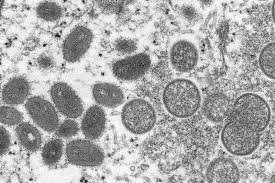NYC reports two new monkeypox cases, bringing citywide total to four

Four people in New York City have tested positive for orthopoxvirus, the family of viruses to which monkeypox belongs, health officials said Tuesday.
Both the city’s and the state’s health departments reported four positive tests of orthopoxvirus, with the city stating the cases are “presumed to be monkeypox.”
Monkeypox is a rare, contagious disease usually found in central and western African countries, according to the city’s health department. Person-to-person transmission is rare, officials said, but it can happen through contact with open sores, bodily fluids, or “large respiratory droplets.”
“Most New Yorkers are not at risk of infection with monkeypox. Monkeypox is rare but can spread through close prolonged contact with an infected person or animal,” the city’s Department of Health and Mental Hygiene said in a statement last week. “This might include contact with the skin lesions, body fluids, or sharing clothes or other materials that have been used by someone who is infectious, and also through respiratory droplets in prolonged face-to-face contact.”
Initial symptoms include fever, headaches, body aches, swollen lymph nodes and exhaustion, according to health officials. Within three days of becoming symptomatic, infected people develop a rash and lesions on the face or body, including the genitals, according to the city.
If you start experiencing symptoms, the city says to isolate, avoid skin-to-skin contact with other people, and contact your health care provider. If you don’t have a health care provider, you can call 311.
The city is warning those who recently traveled to Portugal, Spain, the UK, Canada, or certain African countries they are more likely to be exposed to monkeypox.
As of May 26, all the confirmed cases of monkeypox in the United States were gay, bisexual, or other men who have sex with men, the Centers for Disease Control and Prevention said.
But CDC director Dr. Rochelle Walensky warned exposure to the disease is not limited to any single community.
“I urge everyone — those in public health, clinical providers and the community — to stand in solidarity with the LGBTQ community, while actively preventing stigma and discrimination,” Walensky said Thursday. “Not to do so would be to all of our detriment.”







